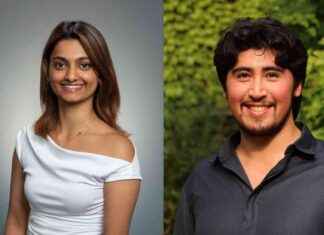Soccer professional Mario Vuskovic from the second division club Hamburger SV has been banned for two years because of EPO doping. That was decided by the sports court of the German Football Association (DFB), chaired by Stephan Oberholz, like the DFB.
The 21-year-old Croatian has always rejected the doping allegation and can go before the DFB Federal Court within a week. The procedure had developed into a fundamental dispute over Epo analysis.
HSV announced an appeal. “We took note of the decision of the DFB sports court and, after an exchange with Mario’s lawyers, immediately agreed that the judgment should be appealed,” said sports director Jonas Boldt in a statement from the club. “We will now deal with the reasons for the judgment in peace.”
Vuskovic’s previous ban will be taken into account, so that the ban will apply retrospectively from November 15, 2022. The sentence is below the maximum suspension of four years. “The defense was unable to provide evidence of a false doping finding,” the DFB statement said.
“As a result of the procedure, the DFB sports court is convinced with sufficient certainty that the analyzes of the A and B samples of the player’s urine in the laboratory in Kreischa have shown the presence of exogenous erythropetin, EPO for short,” Oberholz was quoted as saying . “This is a prohibited so-called ‘non-specific substance’, which is a punishable violation of the anti-doping regulations of the DFB.”
Defense questioned tests as “false positive”.
In a sample taken on September 16, the central defender was found to have exogenous erythropoietin (Epo). In December, the result was confirmed by the findings of the B sample. In November, Vuskovic was temporarily suspended by the DFB.
After three days of the trial, the sports court was initially unable to make a judgment. Therefore, after the third day of negotiations on March 17, Chairman Oberholz announced “a written decision within the next two weeks at the latest”. This has now been communicated to Vuskovic and HSV. Before his announcement, Oberholz had unsuccessfully sought an amicable solution between the DFB control committee and the Vuskovic side.
The sports court’s decision in the fundamental dispute over the EPO analysis is also a victory for the World Anti-Doping Agency (Wada). Four experts hired by HSV had unanimously questioned the positive result of the WADA-accredited analysis laboratory in Kreischa as “false positive”. Laboratory head Sven Voss, on the other hand, assured that Vuskovic’s sample looked exactly “as a positive sample should look”.
Chief prosecutor pleads for a reduced sentence
Chief Prosecutor Anton Nachreiner agreed. “I consider this doping allegation to be proven without any problems,” he said in his closing speech. At the same time, he had pleaded for a reduced sentence “for a 21-year-old young man who may have made a mistake once and before a probably very successful career would be ruined”. Vuskovic’s lawyer Joachim Rain saw no reason for a conviction: “We are applying for acquittal because Mario Vuskovic did not dope.”
One of the points of contention in the process: Wada’s Epo analysis method, which has been in use for over 20 years. She is always questioned. With the SAR-PAGE method, a visual check is carried out to determine whether the result is negative or positive. Almost all other doping substances are detected using a mass spectrometric method.
In view of the dispute between the experts, Oberholz had appointed Jean-Francois Naud as an independent expert. However, the Canadian sits with Voss on the Wada working group for Epo. The sports court had rejected an application for bias by the Vuskovic lawyers.
C sample rejected
Naud had refused Oberholz’s order to analyze a C sample after the usual A and B sample from a urine volume of 43 milliliters, as this contradicted the WADA rules. A third analysis result would have made it easier for the judge to reach a verdict. According to the DFB, Epo expert Naud had confirmed the assessment of the laboratory in Kreischa in his report.
Vuskovic was loaned by HSV from Hajduk Split in 2021 for 1.2 million euros and was committed last summer for three million euros. Until his suspension, he played in Hamburg’s defence. At HSV it is considered an investment in the future.










